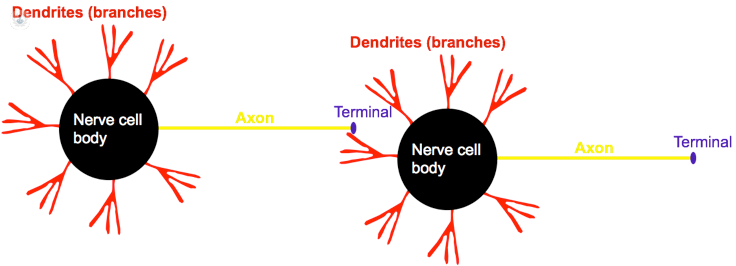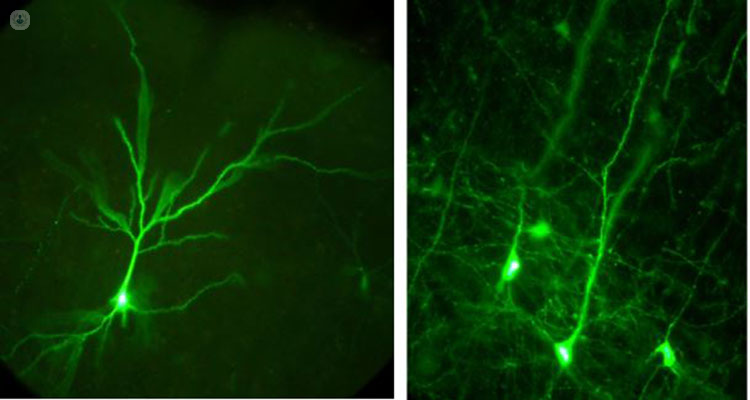What are seizures and what is epilepsy?
Autore:Professor Matthew Walker is a leading neurologist and expert in treating seizures and epilepsy, but what are the differences between these two? Here he explains. The brain is a very complex organ that is made up of more than 100 billion interconnected nerve cells. These nerve cells process and store information and are responsible for:
- Generating our thoughts and emotions
- Controlling our movements
- Sensing our environment
What do nerve cells look like?
Nerve cells have a main body which branches into ‘dendrites’ which detect certain chemicals. There is also a projecting fibre which is called an axon.

How do nerve cells work?
When a nerve cell is sufficiently ‘excited’, an electrical impulse is fired down the axon which results in a release of chemicals at specialised terminals. These chemicals either excite other nerve cells or pacify (inhibit) other nerve cells (dampening excitation).
If there is too much excitation in the brain, with all nerve cells stimulated simultaneously, the result would be an ‘electrical storm. If there is too much inhibition of nerve cell excitement in the brain, then the brain would cease to function. Hence, there is a fine balance between excitation and inhibition for optimal brain functioning.
What is a seizure?
When a seizure occurs, there is something disturbing the balance of excitation and inhibition, causing too much excitation and an ‘electrical storm’. If this happens in one part of the brain, this is called a focal seizure. If this occurs throughout the brain, it is called a generalised seizure. When an electrical storm happens in one area of the brain, it can spread to other parts of the brain as well.
The type of seizure depends on where in the brain it began and how far and fast it spreads. For example, if a seizure originates in the part of the brain responsible for controlling movements of the hand, the hand could start to jerk around, and as the seizure spreads, other limbs will start jerking and the person could then go on to lose consciousness. If a seizure starts in the part of the brain responsible for controlling emotion, the patient may be overcome with a sudden feeling of fear and as the seizure spreads, they could lose awareness of their surroundings.
How long do seizures last for?
A seizure will usually last for less than a couple of minutes, but afterwards the brain may not work properly for up to 20 minutes, during which time the patient may feel disoriented and confused.
What is epilepsy?
Everyone is capable of having a seizure, and roughly one in twenty people will experience a seizure in their lifetime. However, for many people this is the only seizure they will have. For others, there is either a disturbed balance of inhibition and excitation causing recurrent generalised seizures, or the balance is permanently disturbed in one region of their brain causing recurrent focal seizures. When someone is prone to having recurrent seizures, this is termed epilepsy.
These disturbances can be caused by numerous reasons, including:
- Genetic make-up
- Congenital brain damage
- Abnormalities of brain development
- Head injuries
- Stroke
- Brain infections
- Brain tumours
- Dementia
- Use of certain drugs and alcohol
How common is epilepsy?
Epilepsy is not an uncommon condition, with one in thirty people developing epilepsy in their lives. However, at a given time, less than 1 in 100 of the population have epilepsy. This is because it is possible to control epilepsy in the majority of cases, and, in some people, the epilepsy may resolve completely. However, roughly one-third of people with epilepsy do not have control using available medications, and for these patients there are other treatment options available.
To find out more about epilepsy or to arrange a consultation, make an appointment now with an expert.



